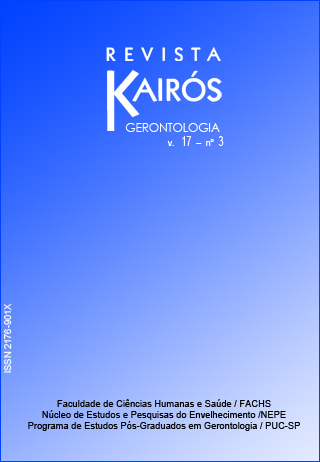Liberdade involuntária em idosas viúvas – olhares narrativos.
DOI:
https://doi.org/10.23925/2176-901X.2014v17i3p43-57Palavras-chave:
Envelhecimento, Viuvez Feminina, Atividades.Resumo
O processo de viuvez na terceira idade é predominantemente vivido pelas mulheres, devido ao diferencial etário entre a esperança média de vida do sexo feminino face ao masculino. Nesse contexto, através deste estudo, pretende-se compreender como o estado de viuvez no feminino, influenciou as opções de estilo de vida, identificando as alterações originadas em mulheres idosas e influencia as diferentes atividades do dia a dia e de lazer. Com uma metodologia qualitativa, assume-se como um estudo exploratório-descritivo, realizado junto de um grupo constituído por 30 idosas na situação de viúvas e com idade igual ou superior a 65 anos. Para a recolha de dados optou-se pela realização de entrevistas semiestruturadas, sendo posteriormente os dados analisados em termos de conteúdo e tratados com o suporte do Software WebQda (Web Qualitative Data Analysis). Os principais resultados evidenciam que o facto de as idosas terem ficado viúvas lhes deu maior independência e sensação de liberdade, apesar do estudo inferir, igualmente, que a viuvez possui um impacto marcante, porquanto se observa uma tendência exponencial para a descrição de emoções associadas ao processo de luto.


